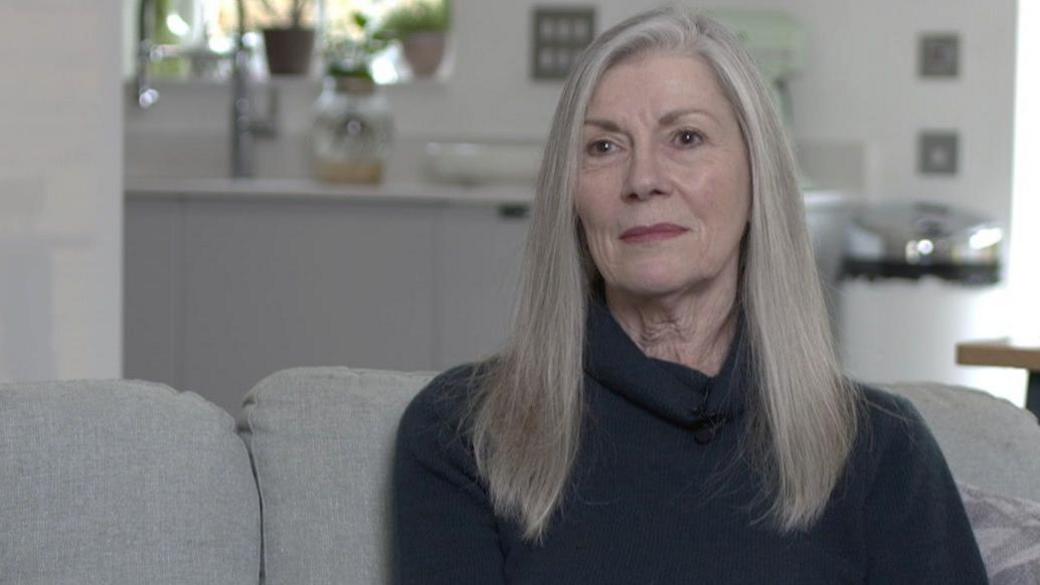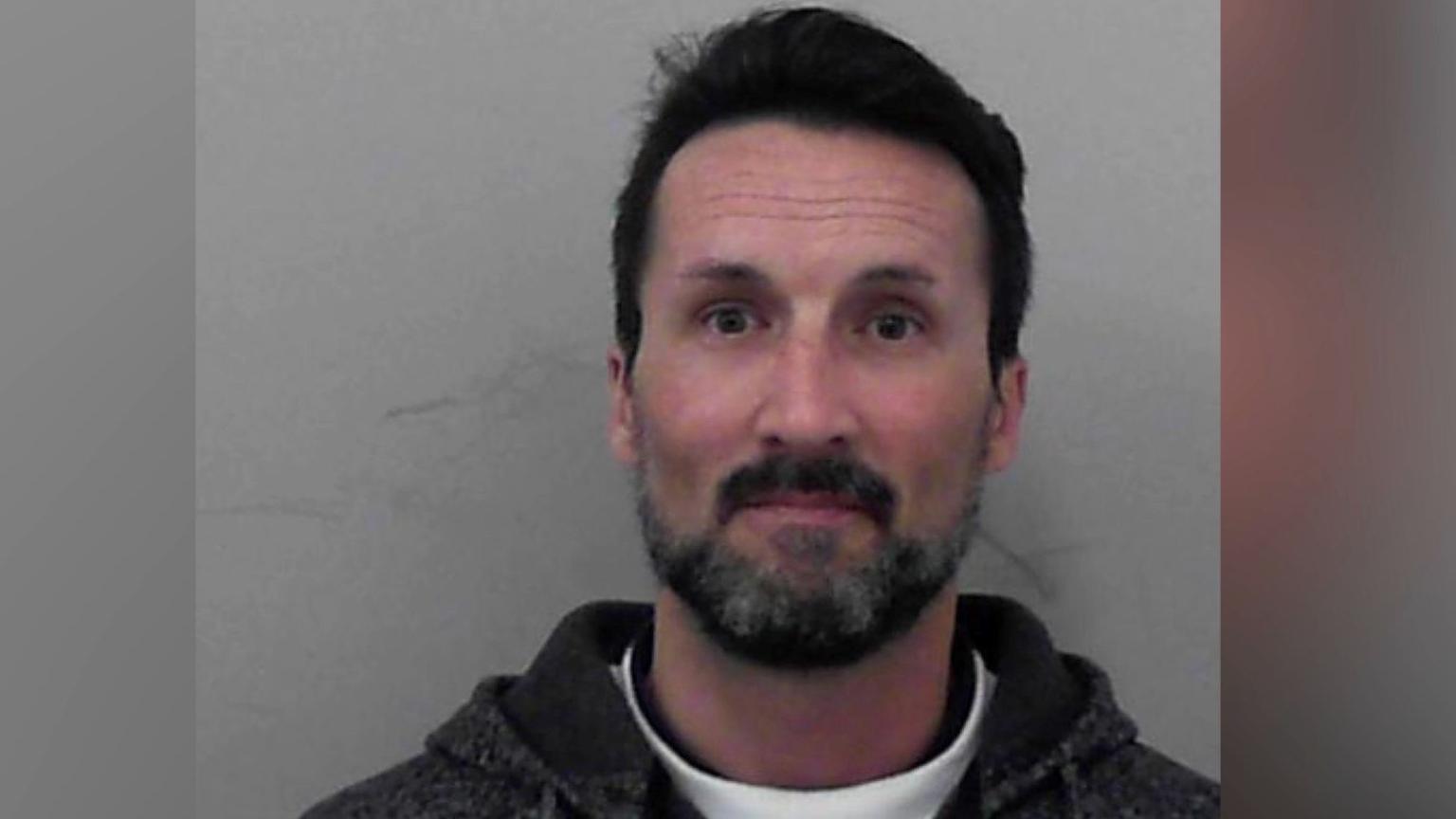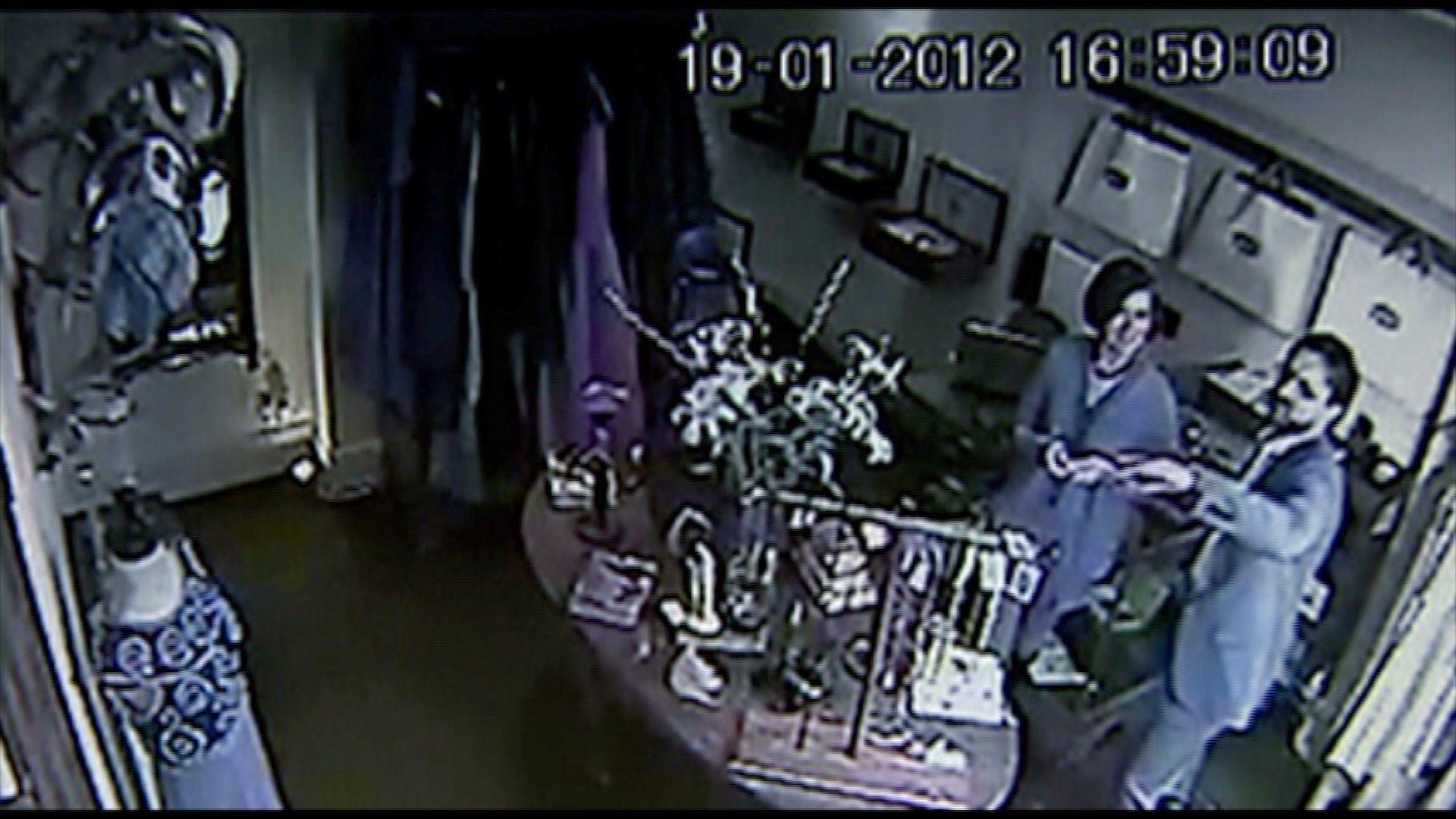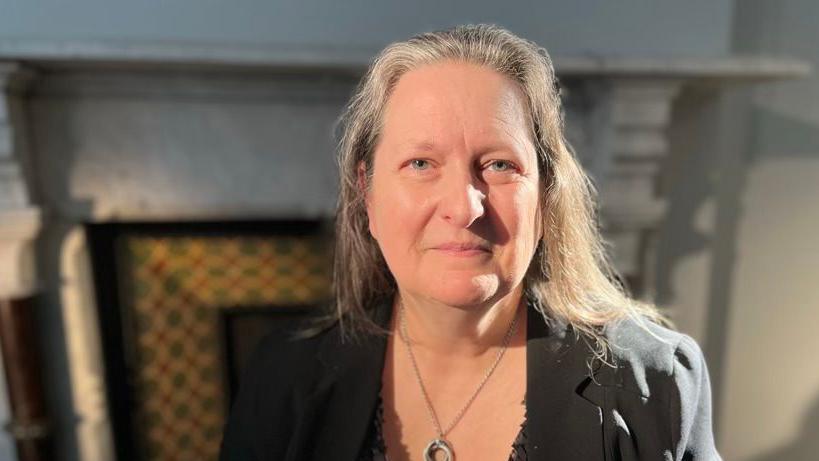Spy scam victim: 'I'll never get my £850k back'

Carolyn Woods says she was persuaded to loan fraudster Mark Acklom her life savings
- Published
A woman tricked out of her life savings by a conman who claimed to be a spy believes she will never get her money back.
Mark Acklom persuaded Carolyn Woods he was an MI6 agent and successful businessman in order to take her savings.
She says she lost £850,000 to him 12 years ago, and court action against him has been delayed until at least December 2024.
Acklom, once named on the National Crime Agency’s list of 10 most wanted fugitives, has been dubbed 'Britain’s most notorious conman'.
He admitted defrauding Ms Woods of £300,000 in 2019, when he was extradited back to the UK from Spain.

Mark Acklom fled to Spain but was extradited back to the UK in 2019
Acklom convinced Ms Woods to lend him money for renovation work at a string of properties he owned after he promised to marry her during their year-long relationship.
She said: “This has dragged on now for about 12 years. I don’t really think I’ll get any of the money back.”
Ms Woods had recently split from her partner and sold her house when she met Mark Acklom at the shop where she worked in Tetbury, Gloucestershire in 2012.
She said: “He was very exciting at the time - until I realised how evil he was.
"He appears to give you what you want, but he just walks away with everything.”

CCTV footage of the day Carolyn Woods first met Mark Acklom is the only footage of them together - he claimed being a spy meant he couldn't be photographed
She said the lies he told her included claiming he was an undercover MI6 agent, often serving overseas with the British security services.
On one occasion, Ms Woods said she saw him walk calmly past armed guards outside the spy agency's HQ in London.
She now believes the guards were actors and the incident was staged.
“I look back and I think - especially with the money - how on earth did I behave like that? I’m an intelligent, rational person.
“But Mark Acklom told me he can read people like books within minutes. He knows people better than they know themselves.
"He knows exactly which buttons to press.”

Mark Acklom promised to marry Carolyn as part of the romance scam against her, and she even bought a wedding dress she never got to wear
Ms Woods said Acklom put her up in a luxury flat in Bath and promised to marry her. He then persuaded her to loan him hundreds of thousands of pounds in a series of agreements.
In reality, he was living with his wife nearby while repeatedly lying to Ms Woods about why he couldn’t spend time with her.
He was even using the money she had loaned him to pay for the flat in Bath.
At the same time, Acklom was also running a number of other scams in Bristol, Bath and Gloucestershire, with many small businesses and entrepreneurs left thousands of pounds out of pocket.
At one time, he claimed to have had a brain tumour removed.
A fluent Spanish speaker, he eventually fled to Spain.
'I try to have hope'
Ms Woods has never recovered any of her money, and says it has been hard to get her life back on track.
Acklom was released from prison in Spain in 2023 after being extradited back there.
This came after he was jailed for nearly six years in the UK for defrauding Ms Woods.
Since he pleaded guilty to fraud in 2019, efforts have been under way to recover money through the Proceeds of Crime Act.
These court proceedings can force criminals to repay money earned through crime - or face an additional jail sentence.
A final hearing aimed at setting the amount of money Acklom needs to repay had been scheduled for April 2024, but has been pushed back until December because the judge was unavailable, following a diary clash.
Ms Woods said: “I don’t feel as though I’m on an even keel. You just have to try and be positive and have some hope.
“As you get older, all the things that I thought I'd be doing at this stage of my life are just impossible because there isn't the money.
“Most of all, I would just like to be independent and have my own place to live.”

Financial investigator Claire Berrington says Acklom could face jail again
‘Prison focuses the mind’
Forensic Accountant Claire Berrington has been involved in around 70 Proceeds of Crime confiscation hearings. She says the Proceeds of Crime Act allows for a default prison sentence if criminals fail to pay the money they are ordered to.
She said: “In many cases, these sentences are far more than the sentence for the original crime they committed. The prospect of spending more time in jail focuses the mind like nothing else.”
But she acknowledges that criminals like Mark Acklom are adept at hiding their assets.
She says, “I think it’s very unlikely [Carolyn] will get it all back because in simple terms, [criminals] take the money and spend it.
"They tend to spend it on holidays and lifestyle. They’re called lifestyle offences for that reason.”
But she says the Proceeds of Crime Act is “broadly successful” as a method of recovering criminal assets.

Mark Acklom, who has been jailed for fraud in at least three countries, was photographed in Geneva, Switzerland, in 2017.
Ms Woods believes that as a lifelong fraudster, Acklom will know how to hide his money from the authorities.
“His advice to me was never to have anything in your own name because somebody will come and steal it. So, I’d be very surprised if they find he has got assets in his own name.
“I don’t really think I’ll get any of the money back.
"However I do think he should be obliged in law to pay me back whether I ever see the money or not.”
In a statement, a Government spokesperson said, “More people are being brought before the courts... and our latest figures show the Crown Court sat more days in the last financial year than at any point in the last seven years – totalling over 107,000 days.
"We’re also boosting investment in the system.”
‘Moral obligation’ to repay
Ms Woods has also called on Barclays Bank to repay her money.
Mark Acklom told her to open a Barclays account at the start of their relationship, which she did.
She paid her life savings into this account, and transferred hundreds of thousands of pounds out.
Ms Woods believes a Barclays insider may have helped facilitate the transfer of her money.
She said, “I had hoped that they might feel some moral obligation. If you look at my bank statements, you can see this total haemorrhage of money.
“I know I made some of those transactions under the coercive control of Mark [Acklom]. They should have taken more care of my money.”
A Barclays spokesperson said: “This matter has been thoroughly investigated and we have shared our detailed findings with our customer.
“We have not found evidence that members of Barclays staff assisted in the fraud.”
Data obtained by the BBC in February found reports of romance fraud have risen by almost 60% in the last four years, driven largely by online scammers.
The government said fraud in general is falling, and it has recently launched a new campaign against online fraud.
- Published10 August 2023

- Published22 February 2019

- Published3 July 2018
